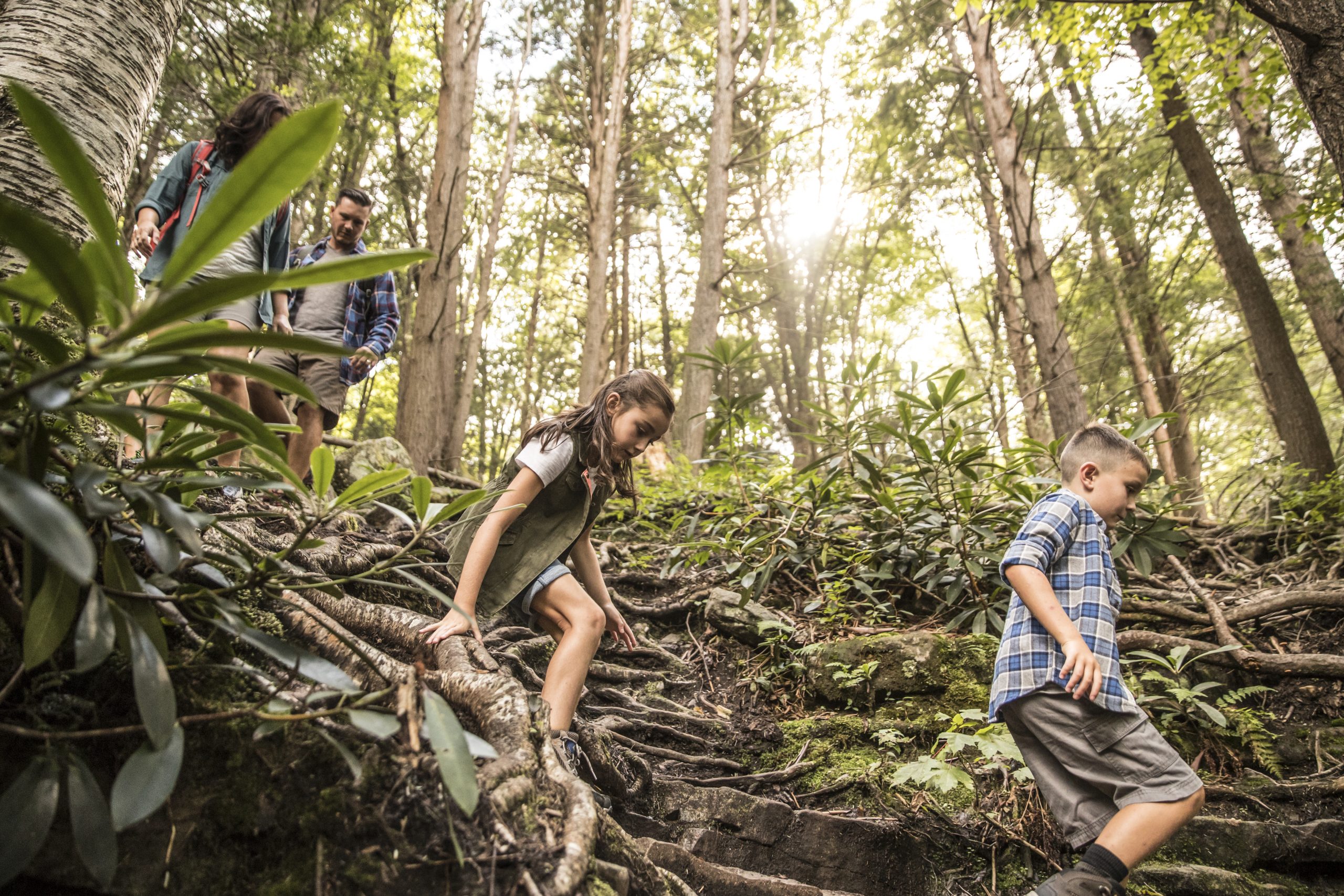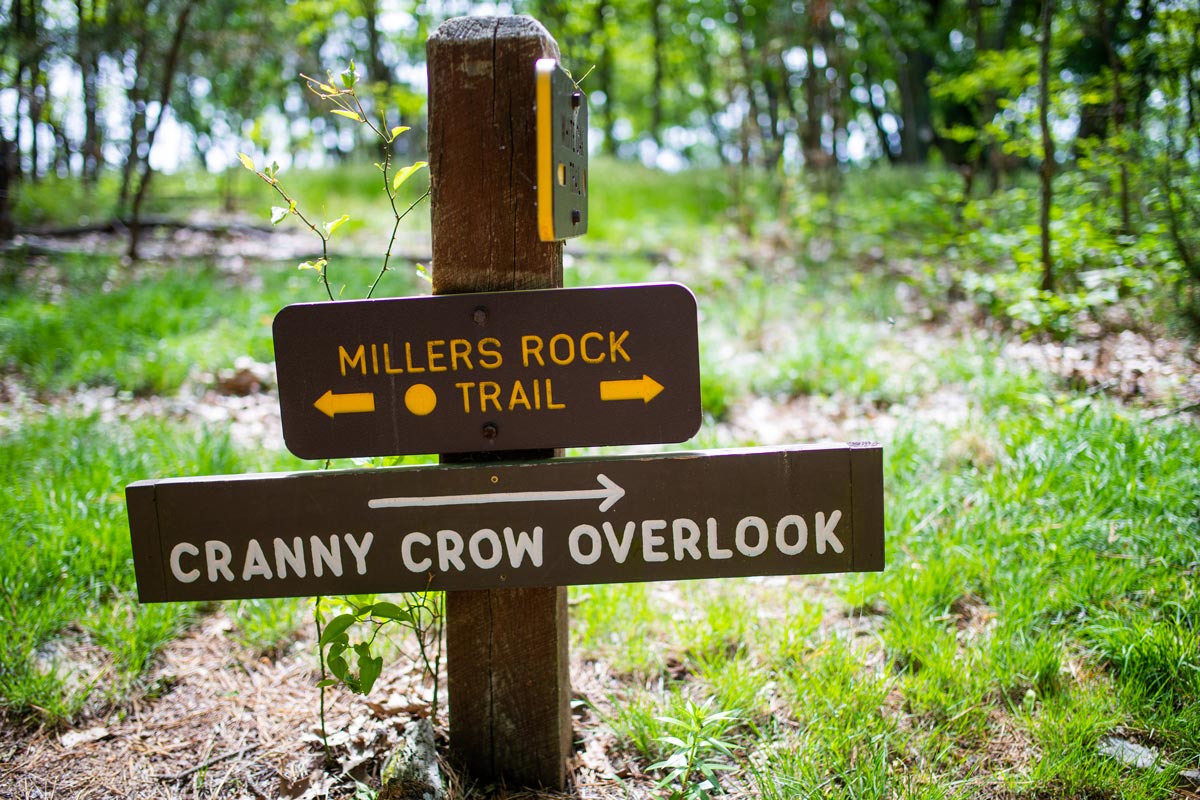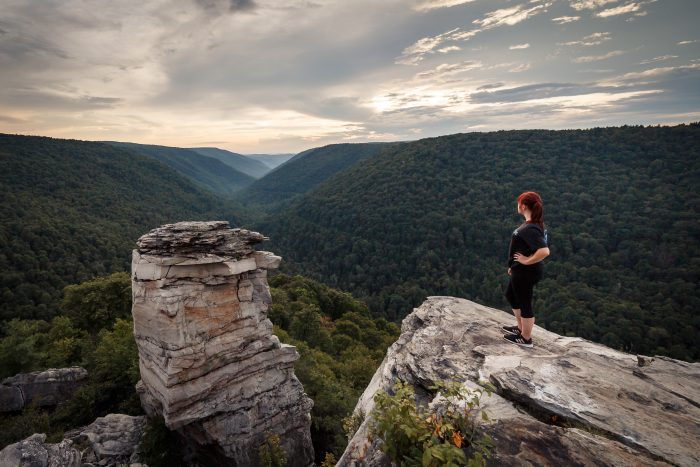Park and Trail Etiquette: Dos and Don’ts of Visiting WV State Parks
When it comes to spending time outdoors, park and trail etiquette will help you responsibly enjoy nature in a way that conserves the scenic beauty of our state parks so everyone can have a good time.
One of the best ways to make sure you’re practicing proper park and trail etiquette is simply following the seven Leave No Trace principles. Don’t know what it means to leave no trace? Here’s what you need to know:
- Plan ahead and prepare
- Travel and camp on durable surfaces
- Dispose of waste properly
- Leave what you find
- Minimize campfire impacts
- Respect wildlife
- Be considerate of other visitors
Follow these common-sense rules anytime you set foot in a park and you’ll be ahead of the pack when it comes to practicing proper etiquette. But what about all of the other rules and regulations that keep our parks safe and enjoyable for everyone? Here are a few dos and don’ts to keep in mind during your next visit to a state park.



Park and Trail Etiquette: Dos
Do Stay On Designated Trails
Hiking trails are marked for a reason: to keep you and nature safe. There’s rarely a good reason to stray from the trail, even when it comes to taking the perfect picture. By leaving a trail to get a better angle, you run the risk of harming plants, animals or their habitat. You also put your own safety at risk. By leaving a marked trail, you can get lost or step on unstable ground, lose your footing and get injured.
Do Pay Attention To Signs
Speaking of getting lost, trail signage is posted to help you stay on the trail and find your way back to the trail head. But some trail and park areas have other signs posted to warn or direct you, so keep your eyes open and pay attention to any signs you come across in a park.
Do Let Others Pass You on the Trail
Hiking is one of the most popular outdoor activities and a big reason why people visit state parks. This means that during the summer months and other popular travel seasons, trails can get crowded. You can minimize your impact on the environment around the trail and help your fellow hikers enjoy their time outside by letting others pass you on the trail if they’re walking at a faster pace or running. To let someone pass you on the trail, step to the right and let them go by on your left. Also, give the right of way to hikers going uphill.



Park Etiquette: Don’ts
Don’t Touch or Feed Wildlife
If you cross paths with a deer or any other form of wildlife while you’re visiting a park, make sure you keep a distance and whatever you do, don’t touch or feed a wild animal. In fact, feeding wildlife or possessing a wild animal is against the law. Leaving wildlife alone not only protects the animal, but it protects you as well. Touching wildlife can spread diseases and wild animals may attack you if they feel threatened. And you might think feeding a hungry animal is a good thing, it actually hurts them. When wild animals get used to humans feeding them, they lose the ability to provide for themselves.
Don’t Block The View
Part of enjoying the views at a state park is taking a photo. Whether you’re capturing the moment to help you remember your trip or taking a picture to share with your social media followers, be mindful and be polite. Don’t hinder other people’s enjoyment of a view by setting up a camera on a tripod or flying a drone around an overlook. Approach park photography like you would any other attraction. Take turns and wait in line if there’s a crowd. Just don’t hog the view and spoil everyone else’s special moment.
Don’t Alter the Landscape
You might feel tempted to take a souvenir from the woods, but picking wildflowers or removing plants, twigs, bird feathers or rocks is against the rules and has a detrimental effect on a habitat. But you can also alter the landscape in a park by being careless. That’s why you need to watch your step, keep your dog on a leash if you’re traveling with your pet (it’s required) and make sure you educate your kids on the importance of looking but not touching.
Don’t Bring Firewood from Home
Everyone knows that starting a fire outside your campsite’s designated fire ring is a big no-no, but did you know that burning firewood you brought from outside the park can cause some serious damage? You should only burn firewood you purchase from the camp store because wood from your backyard can spread tree-killing insects or diseases. First-time camper? Check out these other tips to help you get the most out of your trip.
Don’t Swim in Waterfalls
Waterfalls are one of nature’s most majestic sights, but like any force of nature they can be dangerous. That’s why you should never swim in a waterfall. Wet rocks are slippery and even the most careful and experienced swimmers can slip, fall and get seriously injured. So, resist the temptation to get a closer look. Waterfalls in state parks have observation platforms where you can safely enjoy the view. Need to cool off on a summer day? Check out a state park swimming pool or adventure lake instead.
Practice Park and Trail Etiquette on Your Next State Park Visit
Ready to practice park and trail etiquette? Plan a trip to a state park today.
Book Now